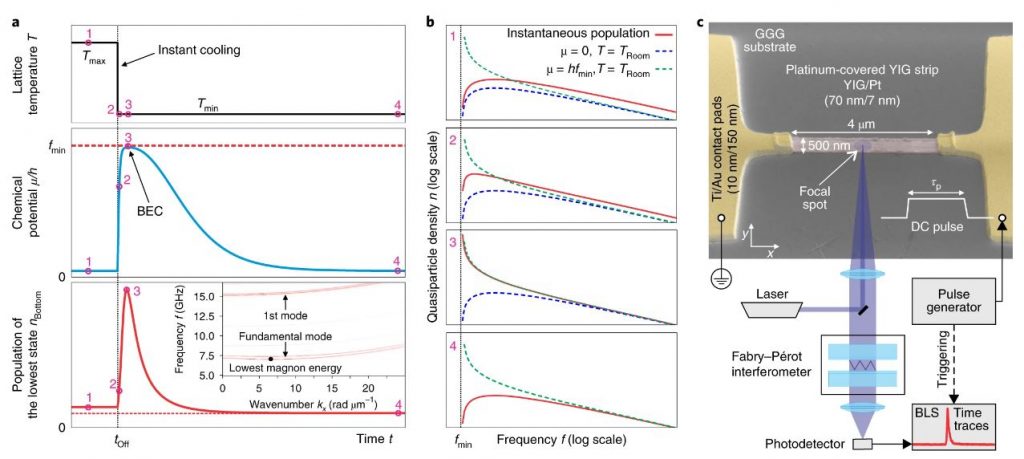BEC of quasiparticles by rapid cooling

The fundamental phenomenon of Bose–Einstein condensation has been observed in different systems of real particles and quasiparticles. The condensation of real particles is achieved through a major reduction in temperature, while for quasiparticles, a mechanism of external injection of bosons by irradiation is required. Here, we present a new and universal approach to enable Bose–Einstein condensation of quasiparticles and to corroborate it experimentally by using magnons as the Bose-particle model system. The critical point to this approach is the introduction of a disequilibrium of magnons with the phonon bath. After heating to an elevated temperature, a sudden decrease in the temperature of the phonons, which is approximately instant on the time scales of the magnon system, results in a large excess of incoherent magnons. The consequent spectral redistribution of these magnons triggers the Bose–Einstein condensation. This work has been published in Nature Nanotechnology and can be accessed here.
